What Obama & Congress Should Do for Health and Medicine

Amid much wrangling over how to allocate funds out of an increasingly out-of-control federal budget, the editors and writers at eight of the TechMediaNetwork's sites sought the advice of dozens of researchers, technologists, futurists, analysts and business owners in fields ranging from space and Earth science to health and technological innovation.
We asked one simple question:
If you could ask President Obama and Congress to do one thing related to your field that would be for the good of the economy and the country, what would it be and why?
The insightful answers are presented in six linked articles on SPACE.com, LiveScience, TechNewsDaily, MyHealthNewsDaily, SecurityNewsDaily, and BusinessNewsDaily, with reporting also provided by the staffs of OurAmazingPlanet and InnovationNewsDaily.
The respondents, ranging from actor Wayne Rogers to medical ethicist Arthur Caplan, called for investment in science and technology and responsible regulation, but also asked government give researchers and businesses the freedom they need to do their work.
At MyHealthNewsDaily, we asked respondents to focus their answers on health and medicine. Here are their replies:
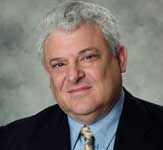
"One good thing the president could and should do is speak up loudly and clearly on the importance of vaccination for kids and adults. Too many parents are not getting their children vaccinated and as a result measles, whooping cough and mumps are making easily preventable comebacks in America. Too many Americans are also not getting a flu shot leaving newborns, the elderly and the immunodeficient at risk of dying. The President should call a press conference, roll up his sleeve, get his flu shot and talk about why vaccines are extraordinarily safe and effective. He also ought to get the Surgeon General and CDC talking loudly and pointedly about the importance of getting vaccinated." -- Arthur Caplan Director of the Center for Bioethics at the University of Pennsylvania
Sign up for the Live Science daily newsletter now
Get the world’s most fascinating discoveries delivered straight to your inbox.

"Create a single food safety agency and make sure it's well funded. Right now, our food safety system is divided between the FDA and USDA, with the FDA getting 20 percent of the funding for 80 percent of the food supply, and the USDA getting the lion's share. The system needs to be consolidated into one agency requiring standard food safety procedures from all food producers, from farm to table." -- Marion Nestle Professor of Nutrition, Food Studies, and Public Health at New York University
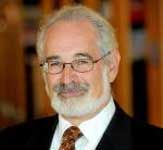
"They should mount an aggressive tobacco control program, including the kind of strong media represented by the American Legacy Foundation's "truth" campaign, as well as do another tobacco (not just cigarettes) tax increase. These efforts will drive smoking down, which will produce immediate benefits in terms of public health (particularly by reducing heart attacks) and reduce healthcare costs in both the short and long run. They could press the motion picture industry to get smoking out of youth-rated films. Smoking in the movies is the main reason that kids smoke. Youth-rated films (like PG-rated Rango which is hitting theaters next week) are a major, if not the major, reason kids start smoking. Getting smoking out of movies would prevent hundreds of thousands of kids from starting to smoke every year at no cost to the taxpayer." -- Stanton Glantz Director of the Center for Tobacco Control Research and Education at the University of California, San Francisco
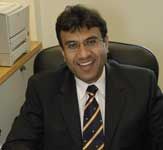
"I would propose that the president fund the creation and enhancement of a new cadre of medical students trained in fundamentals of biomedical research, innovation and translational health (bench to the bedside). A completely novel approach to the future of medical education is needed to fundamentally change the medical culture with an eye on high-quality and low cost execution of care. This requires a grass roots effort more of the same and patch work will simply not suffice." -- Dr. Mandeep R. Mehra Head of the Division of Cardiology at the University of Maryland School of Medicine

"I would urge the president and lawmakers to impede efforts to repeal or defund the health care reform law. The ACA reframes the focus of healthcare away from one that is illness-oriented to one more focused on prevention and wellness. With its support for increased care coordination, health clinics and wellness programs, it invests in accessible, quality care across life's continuum. It also seeks to support our current and future healthcare workforce needs. Attempts to block funding for individual programs as a means of subverting the law only serve to further endanger the health of our citizens and nation." -- Rose Gonzalez Registered nurse and Director of Government Affairs at the American Nurses Association
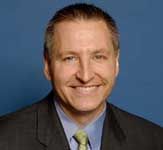
"The most important thing that the President and Congress can do to support medical research is to ensure that the National Institutes of Health (NIH) receives sustained annual budget increases. By supporting the more than 350,000 researchers at over 3,000 universities, medical schools and other research institutions in all 50 states and around the world, the NIH is providing hope for patients and improving Americans' health, while also building and investing in America's innovation economy." -- Jon Retzlaff Managing Director of Science Policy and Government Affairs for the American Association for Cancer Research

"For every policy decision made by the White House, Cabinet [or] Defense Department, the health implications be considered, as well as whatever the immediate decision is. For example: decisions about agriculture affect nutrition. Decisions about energy impact environmental health. Decisions about education affect children's health. Decisions about transportation affect pedestrian, biking health (activity levels) and environmental health. Decisions about free speech and corporate rights (e.g., advertising) affect nutritional and exercise health. Decisions about war affect mental health." -- Dr. Kathi J. Kemper Director of the Center for Integrative Medicine and professor of pediatrics at Wake Forest University Baptist Medical Center
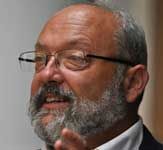
"I would encourage the President to direct public health, mental health, and substance abuse clinics to offer routine, opt-out HIV testing that conforms to CDC guidelines nationwide, and ensure that those who are seropositive get antiretroviral therapy and any supports needed to help them adhere to treatment. This would identify infections earlier on, while it is more easily treated, and reduce community viral load and infectivity in the HIV-positive population to the general population." -- Michael Blank Associate Professor at the Penn Center for AIDS Research at University of Pennsylvania
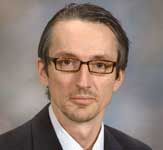
"To ensure that the NIH is protected from budget reduction efforts and that federal funding for the NIH budget continues to increase, modestly, over the next several years. Federal investments in NIH have historically paid major dividends in improving human health, promoting the growth of the biotech industry, and training the future biomedical workforce. If the NIH budget is cut, the effect will be devastating. We stand to lose a generation of young scientists who will seek alternative careers. We also stand to lose crucial opportunities to develop new treatments and interventions that simply cannot wait. For example, advances in the past year on HIV vaccines and microbicides, and pre-exposure prophylaxis for HIV, have shown that we are on the right path and that we really can prevent HIV/AIDS. But unless we maintain and intensify our efforts, we run the risk of squandering this opportunity." -- Steve Dewhurst Director of the Developmental Center for AIDS Research at the University of Rochester Medical Center

"One encourage smoking cessation through public education, taxation and smoking cessation programs. Smoking causes a huge number of preventable deaths each year from cancer and cardiovascular diseases. Two work on eliminating obesity by encouraging physical fitness and better nutrition, and investing in appropriate resources particularly in lower socioeconomic areas which are "supermarket deserts." Obesity is running rampant in this nation, and again, is a source of a huge number of preventable deaths. Yes, insuring more Americans to allow them access to appropriate health care, improving preventative health and cancer screenings, and covering good dental care would all be tremendously beneficial, but truthfully, when you consider the leading causes of death in this country, these two things would be probably top my list of things that would dramatically improve public health." -- Dr. Anees B. Chagpar Director of the Yale-New Haven Breast Center at Smilow Cancer Hospital and Associate Professor at Yale School of Medicine

"If I could say one thing, it would be to encourage him to continue establishing the proposed preventative health services, which would include nutrition services, because of the cost-saving nature of the services. Preventative services are cost effective and would save the nation money while improving the nations' health. Both are a good thing." -- Joan Salge Blake Registered dietitian and Clinical Associate Professor at Boston University












